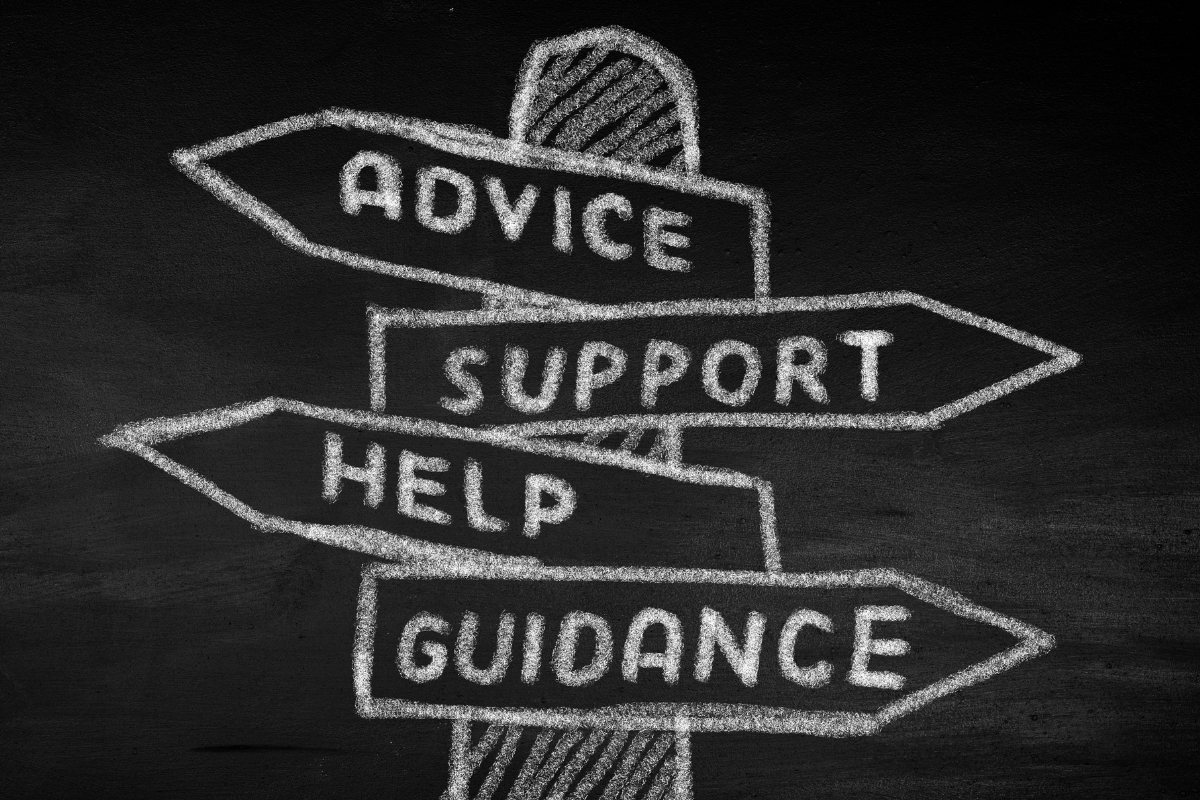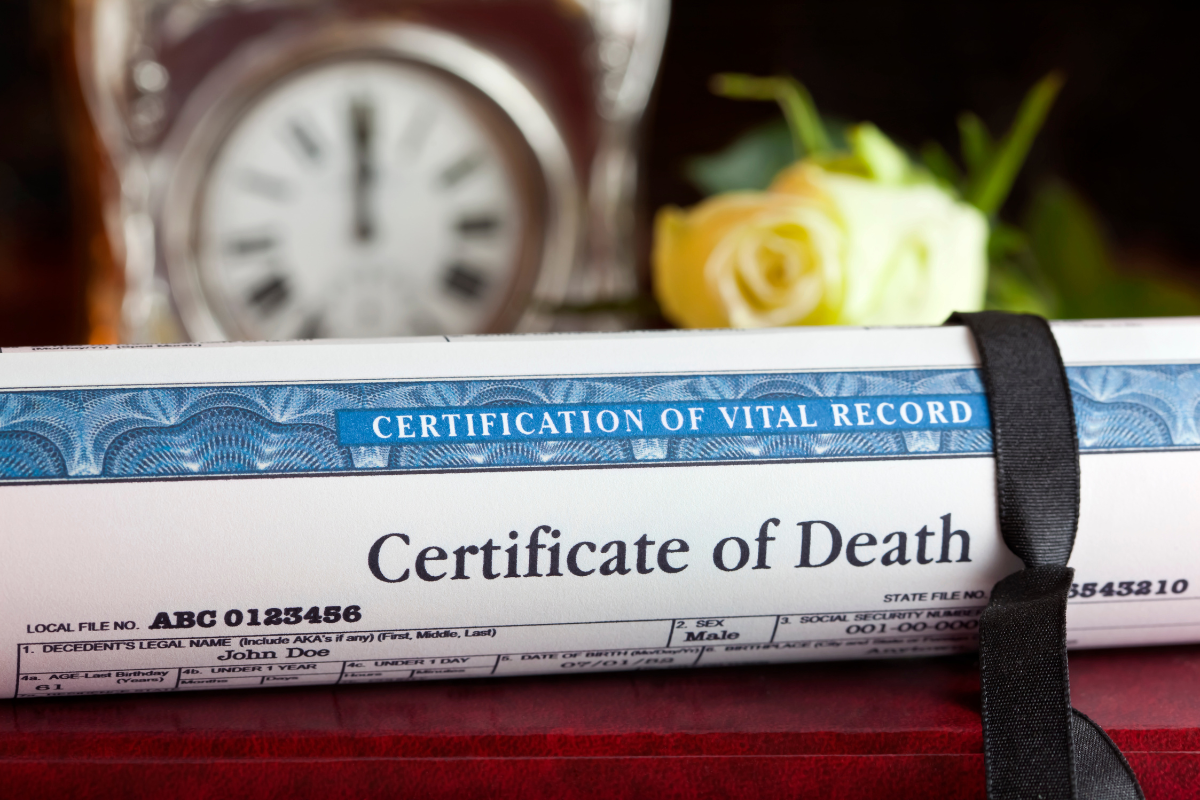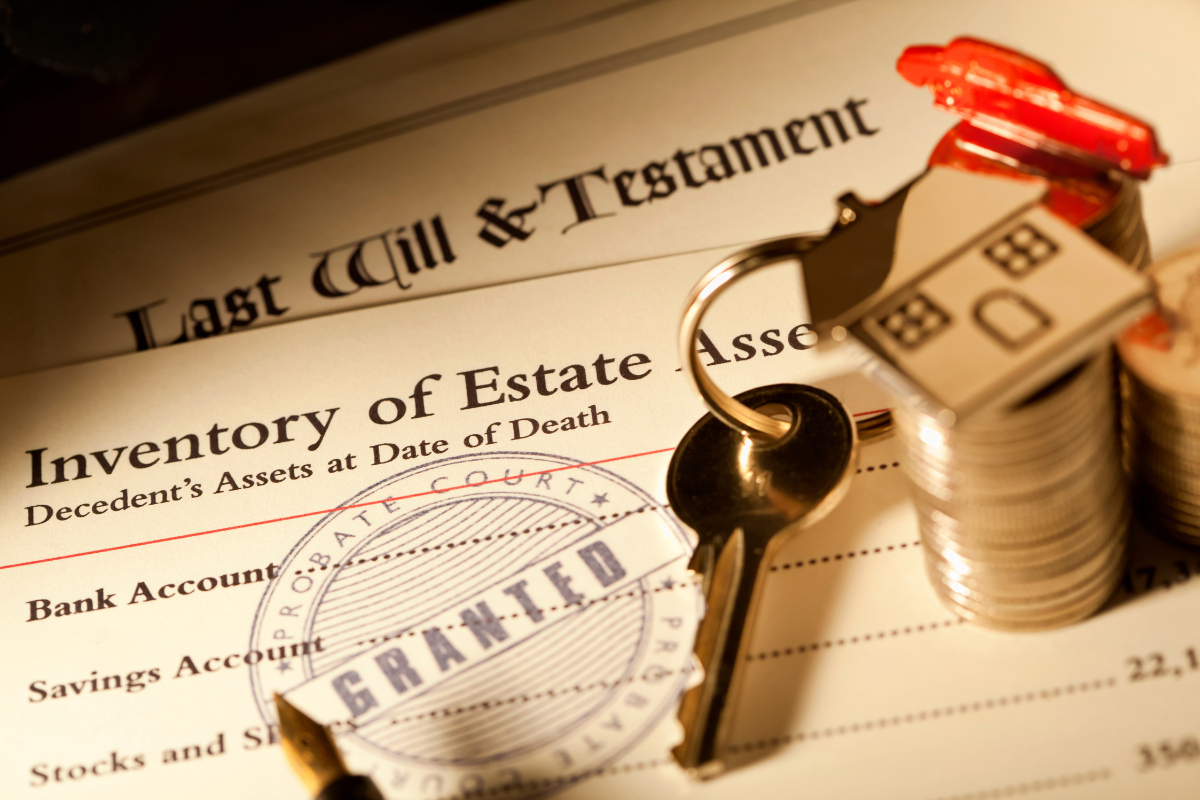Post Disclaimer: This blog reflects the author's personal experience with end-of-life matters and is provided in good faith for informational purposes only. While we aim to provide clear guidance on hard-to-find topics, this content is not legal advice and your use is at your own risk. Estate planning and end-of-life laws vary by location, so please consult your state's laws and seek guidance from a licensed attorney for your specific situation. We make no warranty about the accuracy or completeness of this information, which does not replace professional legal counsel. For more information, please see our full disclaimer.
Within the first 24 hours of facing the loss of a loved one, the responsibilities can feel overwhelming, yet having a clear "death in the family checklist” can guide you through these initial steps with confidence.
During this crucial time, you need to address tasks like notifying family members, securing important documents, and beginning funeral arrangements.
This checklist not only helps organize these tasks but also eases the emotional burden, allowing you to focus on what truly matters.
A structured approach is your best ally during such an emotional time, ensuring that nothing essential is overlooked amidst the grief.

Immediate Emotional Support
Losing a loved one can feel like the world is closing in. It's as though you've been cast adrift on a stormy sea, struggling to keep afloat.
In these moments of intense grief, seeking emotional support is not just beneficial—it's essential.
Having the right support helps us navigate through the pain and begin healing.
Contact Family and Friends
Bringing family and friends together is like weaving a net of care and compassion.
This network offers a safe space to mourn and reminisce, making the heavy burden of loss a little lighter.
Here's why reaching out is so crucial:
- Shared Memories: Talking about shared memories can bring a sense of peace and continuity.
- Mutual Support: It reminds us we're not alone; others feel this loss, too.
- Collective Healing: Coming together helps everyone process their grief, fostering a collective healing process.
Connecting with loved ones can be as simple as a phone call or a group message. Even small gestures matter.
For further guidance, organizations like the National Institute on Aging provide valuable resources on coping with grief.
Seek Professional Support
While family and friends offer comfort, sometimes the grief is too deep to handle alone.
Professional support becomes a lighthouse guiding you through this dark time.
Here’s why it matters:
- Guidance from Experts: Grief counselors are trained to help you navigate your emotions and understand your grief journey.
- Safe Space: Professional support offers a confidential and non-judgmental space for you to express your feelings.
- Strategies for Coping: They provide practical strategies for coping with loss and rebuilding your life.
You have several options for professional support.
The Substance Abuse and Mental Health Services Administration (SAMHSA) offers information on mental health support services, and organizations like GriefShare host support groups that can be incredibly beneficial during this time.
Remember, seeking help is a sign of strength.
Taking these steps today will help steer your emotional ship through the storm of loss, ensuring you and your family find solace and support when it's needed most.

Practical Steps to Take
After the loss of a loved one, the initial period can often feel overwhelming and surreal.
While it's a time for mourning, there are essential tasks to handle promptly.
This guide will help you prioritize what needs to be done within the first 24 hours, ensuring personal responsibilities are met without adding unnecessary stress.
Here are the practical steps to take during this emotional time.
Secure the Premises
Ensuring the home of the deceased is safe from unauthorized access is a critical first step.
By following these guidelines, you can protect personal belongings and important documents:
- Lock All Doors and Windows: Begin by checking every entry point to the home, securing doors and windows to prevent intrusions. Sometimes, simply knowing that the home is secure can provide peace of mind.
- Safeguard Valuable Documents: Important documents like the will, insurance policies, and financial records should be collected and placed in a secure location. Consider where documents might typically be stored, such as filing cabinets, safes, or desk drawers. This guide provides additional insights on how to manage and secure essential items after a death.
Notify Key Contacts
Reaching out to the right people promptly helps in organizing tasks and providing support.
Here's who you should contact immediately:
- Family and Close Friends: Inform immediate family members and close friends as soon as possible. They will not only offer emotional support but might help in organizing and decision-making.
- Employer of the Deceased: If your loved one was still employed, notify their employer. They will need to know about the death to process benefits, payroll, and to inform colleagues.
- Legal and Financial Representatives: Contact the deceased’s lawyer and financial advisor to understand any urgent legal or financial actions. Here’s a helpful checklist to guide you on contacting and notifying organizations after a loved one's death.
Obtain Legal Documents
As you begin managing the legal responsibilities, gathering important documents is crucial.
Here are the steps you need to take:
- Locate the Will: The will is vital for understanding how the deceased wished to distribute their estate. Check obvious locations and, if necessary, contact the deceased's lawyer or search public records. Learn more about locating a will.
- Gather Identification Documents: Personal identification, social security card, and death certificate are essential for legal proceedings and claiming benefits. These documents will often be needed repeatedly in the days and weeks following a death.
By organizing these tasks and proceeding methodically, you can ensure that both personal and legal responsibilities are respected, avoiding interruptions in this already difficult time.
These steps pave the way for further arrangements and decisions, setting a foundation of security and preparedness as you navigate the emotional and logistical aspects of loss.

Administrative Tasks
Handling the administrative aspects immediately after a loved one’s death might feel overwhelming.
However, taking some immediate steps can ease the process.
From coordinating with medical professionals to dealing with insurance matters, each task requires careful attention.
Coordinate with Medical Professionals
To officially record a death, you need to obtain a death certificate.
This process typically begins with notifying the medical professionals who were involved in the care of your loved one.
- Declaration of Death: When your loved one passes away, a medical professional must officially declare the time and cause of death. If this occurs in a hospital, the staff will manage this process. But if it happens at home, you may need to call emergency services to have the declaration made.
- Obtaining the Death Certificate: After the declaration, request a copy of the death certificate. This is critical for many legal and financial tasks ahead. You can usually get this from the funeral home or directly from the local vital records office. For a detailed guide on obtaining a death certificate, visit Free Will's step-by-step guide.
Select a Funeral Home
Choosing a funeral home is an important decision that can influence many aspects of the memorial process.
- Initial Contact: Start by contacting a few funeral homes to discuss your needs and their services. Consider their proximity to your family and their availability.
- Consultation and Arrangements: During consultations, discuss the type of service you want, whether it's a full-service funeral or a simple cremation. Ask about funeral packages and pricing to find what fits your budget. For comprehensive advice on selecting a funeral home, the Funeral Consumers Alliance offers helpful insights.
- Evaluate Offers: Ask about additional services such as memorial tributes, transportation, and if they handle burial or cremation permits. It’s wise to have everything in writing to avoid misunderstandings.
Check Insurance Policies
Insurance policies can provide much-needed financial support during this difficult time, but they need to be reviewed promptly.
- Life Insurance: Begin by reviewing any life insurance policies your loved one had. Policies might be located in their personal files, or you might search for them using tools like the NAIC Life Insurance Policy Locator.
- Health Insurance: Notify the health insurance provider about the death. Some may offer coverage for final medical expenses.
- Contact Providers: Once you identify active policies, contact the insurance companies to initiate the claims process. This often requires submitting a copy of the death certificate, so having multiple copies is beneficial. If you need guidance on finding unclaimed life insurance, Progressive's advice can be helpful.
Fulfilling these administrative tasks is crucial for a smooth transition during this challenging time.
Each step, though daunting, brings you closer to honoring your loved one's memory while managing their affairs responsibly.

Post Death Checklist
When a loved one passes away, it can feel like you're thrown into an emotional whirlwind.
Amid the grief, there are several immediate responsibilities that need your attention.
Completing these tasks can help you focus on healing.
Here’s a checklist to guide you through the critical steps that need to be handled within the first 24 hours.
Organize Important Documents
Gathering essential documents is crucial in managing your loved one's affairs properly.
Imagine these papers as the puzzle pieces you'll need to see the full picture of their financial and legal commitments.
Here’s a checklist of the must-have documents:
- Will and Trust Documents: Often considered the gold standard, as they outline the deceased's wishes for asset distribution.
- Financial Statements: Collect recent bank statements, stock certificates, and retirement account information. This helps clarify their financial situation and ongoing obligations.
- Property Titles and Deeds: Like keys to the kingdom, these documents verify property ownership.
- Insurance Policies: Both life and health insurance policies are vital for sorting out claims and benefits.
For more information, check out my article on gathering important papers.
Notify Appropriate Agencies
Notifying the right agencies is a critical step that can safeguard against potential identity theft while ensuring benefits are appropriately managed.
Here's where to start:
- Social Security Administration (SSA): This is usually handled by the funeral director, but it's good to follow up with the SSA directly. You'll need crucial information like the deceased's Social Security number. You can learn more about this process from the SSA website.
- The Deceased’s Employer: Inform the employer to stop any salary payments and begin processing benefits, such as life insurance or retirement funds. They might also help notify their life insurance provider.
- Financial Institutions: With a death certificate in hand, notify banks, credit card companies, and other financial institutions. This prevents fraud and helps you gain access to necessary funds.
You can find additional guidance and agency/business contact information for notifying agencies at using our death notification checklist.
By addressing these steps effectively, you'll have a smoother path for handling the emotional and bureaucratic challenges that follow a death.

FAQs: Death of a Family Member Checklist
Handling the affairs after the death of a loved one can feel overwhelming.
It’s like trying to put together a puzzle with a ticking clock, yet each piece is crucial.
To help navigate this difficult time, understanding common questions can provide a solid foundation.
Let’s address some FAQs that often arise in the wake of a death in the family.
What should be included in a post-death checklist?
Creating a comprehensive post-death checklist ensures that you cover all necessary steps in managing your loved one's affairs.
Here’s what typically needs to be included:
- Secure Death Certificates: Obtain multiple certified copies for legal processes.
- Locate the Will: Identify the executor to start legal proceedings.
- Notify Social Security: It's essential to report the death to the Social Security Administration to avoid benefit issues.
- Contact Insurance Companies: Inform them about policy claims.
- Organize Financial Affairs: This includes bank accounts, credit cards, and debts.
- Plan the Funeral Arrangements: A key component of the funeral planning process is deciding on burial or cremation.
These steps can offer a structured approach during an emotional time.
How soon should you notify family members?
Notifying family members should happen as soon as realistically possible.
It’s vital to communicate the news directly and compassionately.
Ideally, the immediate family is told in person or via phone to offer consolation and support.
According to Bereavement Advice, consider preparing them with available support resources to help cope with the loss.
Who is responsible for organizing funeral arrangements?
Generally, among the executor's legal responsibilities, is making funeral arrangements for the deceased.
If the deceased left specific instructions, those should be followed closely.
What documents are needed to declare death?
To officially declare death, you'll need a few key documents. This includes getting a certified death certificate, which is issued by the attending physician or coroner.
Agencies like Legal Voice recommend having the deceased's full name, date, and place of death, Social Security number, and marital status at hand.
These are critical for subsequent financial and legal formalities.
How do I handle the deceased's digital assets?
In the digital age, managing a deceased loved one's digital footprint is essential. Begin by compiling a list of online accounts and passwords.
Having a digital executor designated in the will can streamline this process.
Access to social media, email, and cloud storage should be coordinated to preserve or close accounts according to their predefined wishes.
Ensure compliance with platform-specific policies and state regulations regarding digital assets.

Wrap-up: Death of a Family Member Checklist
Facing the first 24 hours after a loved one's death demands decisive actions.
Following a clear death in the family checklist ensures crucial tasks aren’t overlooked, from securing death certificates to notifying family members.
Each step supports the transition, lessening chaos during emotional upheaval.
Lean on this structure and seek professional advice when necessary.
Embrace the process as a guide. It offers the peace of mind needed to navigate this challenging moment.
Remember, every step you take honors your loved one's memory, while also providing you with the support you need during this time.
Check out the Up & Doing glossary page for an alphabetical listing of key terms related to estate administration, funeral planning, and end-of-life topics.




